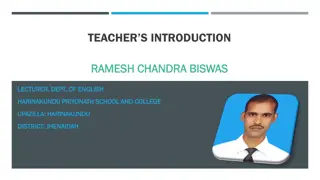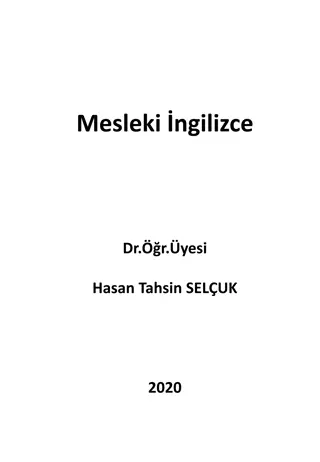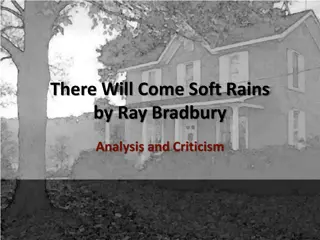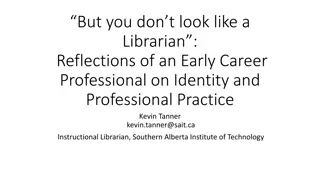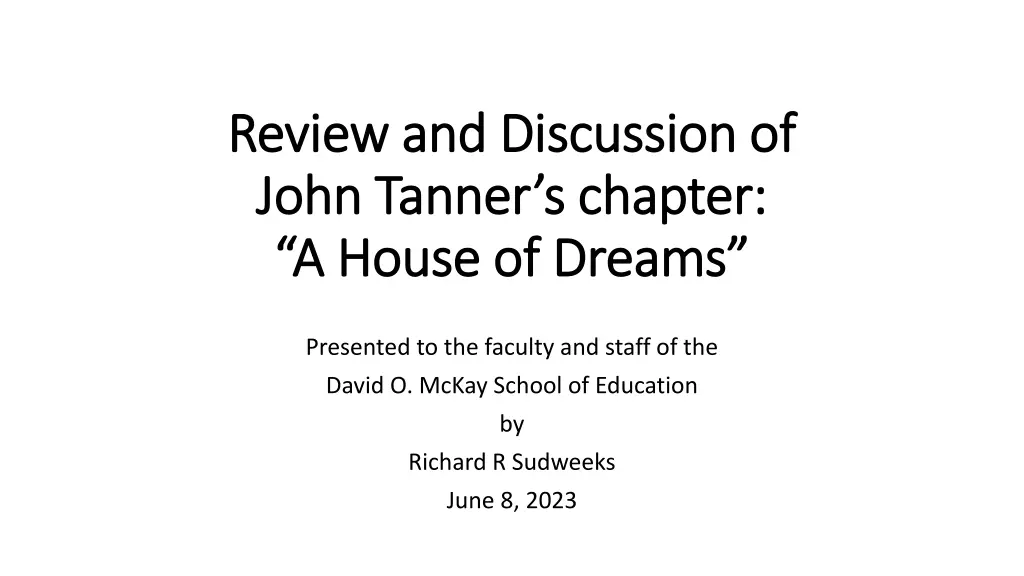
Review and Discussion of John Tanner's Chapter: A House of Dreams
Explore the essence of John Tanner's chapter "A House of Dreams," focusing on BYU's foundational principles and visionary aspirations. Tanner emphasizes the importance of dreams and ideals in shaping the institution's identity and mission.
Download Presentation

Please find below an Image/Link to download the presentation.
The content on the website is provided AS IS for your information and personal use only. It may not be sold, licensed, or shared on other websites without obtaining consent from the author. If you encounter any issues during the download, it is possible that the publisher has removed the file from their server.
You are allowed to download the files provided on this website for personal or commercial use, subject to the condition that they are used lawfully. All files are the property of their respective owners.
The content on the website is provided AS IS for your information and personal use only. It may not be sold, licensed, or shared on other websites without obtaining consent from the author.
E N D
Presentation Transcript
Review and Discussion of Review and Discussion of John Tanner s chapter: John Tanner s chapter: A House of Dreams A House of Dreams Presented to the faculty and staff of the David O. McKay School of Education by Richard R Sudweeks June 8, 2023
Introduction and Overview Introduction and Overview This chapter is an abbreviated version of the speech given by Academic Vice President John Tanner to the BYU faculty at the annual university conference in August, 2007. Tanner, J.S. (2022). A house of dreams. In J.S. Tanner (Ed.), Envisioning BYU: Foundations and dreams (pp. 235-252). Brigham Young University.
The Focus of the Chapter The Focus of the Chapter President Tanner s speech is focused on the idea expressed in the title and elaborated in the first paragraph. First, he acknowledges that BYU consists of: 1. Brick and mortar buildings, 2. Well-groomed grounds, 3. Remarkable human capital, and 4. Cluttered faculty offices. Then, he concludes this introductory paragraph with two assertions: 1. But above all, BYU is and ever has been built of dreams and ideals. 2. Our house of learning is also a house of dreams.
What Does the Term Dream Mean What Does the Term Dream Mean in the Context of Brother Tanner s Speech? in the Context of Brother Tanner s Speech? In some instances, he uses the term dream to refer to someone having visualized a series of images in their mind. But his use of this term does NOT refer to fantasies, hallucinations, or illusions.
More About Brother Tanners More About Brother Tanner s Use of the Term Dream Use of the Term Dream In a more generic sense, he uses the plural term dreams to summarize the goals, the hopes, and aspirations for BYU espoused by visionary persons including prophets and other leaders in the history of this institution.
Important Distinction Important Distinction Some persons might label such idealistic goals as pipe dreams, or pie-in-the-sky daydreams. But to the visionary individuals who espoused these aspirations they were much more than wishful thinking.
The Dreamers The Dreamers In this chapter, President Tanner includes statements from several visionary leaders including: Brigham Young John Taylor Karl G. Maeser Alfred Kelley But the focus is clearly on the goals and aspirations for BYU proffered by President Spencer W. Kimball
Outline of the Chapter Outline of the Chapter 1. INTRODUCTION 2. STUDENTS A Refining Host for Brilliant Stars Quality Teaching and Learning 3. PROGRAMS Peaks and Planks Not an Educational Factory 4. FACULTY In Pursuit of Excellence Bathed in the Light of the Gospel No Place for Mercenaries 5. CONCLUSION
Source Materials for Brother Tanners Speech Source Materials for Brother Tanner s Speech In this chapter, Brother Tanner has selected ideas from three speeches given at BYU by President Kimball including: Education for Eternity (1967) The Second Century of Brigham Young University (1975) Installation and Charge to the New President (1980) The chapter draws most heavily from Pres. Kimball s 1967 speech, less from his famous 1975 centennial speech, and least from the 1980 charge to Jeffrey Holland when he was installed as the new president of BYU in 1980.
Brother Tanners Comments Brother Tanner s Comments About President Kimball s Three Speeches About President Kimball s Three Speeches Pres. Tanner concludes, Taken together, these three visionary discourses span three BYU administrations and thirteen years. Then he adds, They constitute a major prophetic announcement upon the unfolding dream of BYU.
President Kimballs Formal Education President Kimball s Formal Education Spencer Wooley Kimball graduated from Gila Academy (a high school) in Arizona. He was a good student, though not academically exceptional. He served as class president for each of his four years at the academy. He had made plans with some fellow students to continue his education at the University of Arizona the very next year, but he was surprised and disappointed at the graduation ceremony when his father, the stake president, announced in his speech that Spencer would be called to serve as a missionary for the church that Fall instead of becoming a university student.
Events Following High School Graduation Events Following High School Graduation Spencer was called to serve in the Swiss-German Mission, but because war broke out in Europe he was reassigned to serve in the Central States Mission. Following his mission, he returned home and enrolled at the University of Arizona, but he was only able to attend for one term. He enrolled at BYU the next Fall, but shortly after he arrived in Provo, he received a notice from his local draft board, that he must return home and prepare to be drafted. Consequently, he withdrew from BYU and returned home to Arizona but the World War I ended before he was inducted. In the meantime, he dated and married Camilla Eyring whom he had met just before going to Provo.
Spencers Perception of Himself Spencer s Perception of Himself According to his biographer, in later life Spencer always felt somewhat self-conscious and inadequate because of his lack of formal education beyond high school. He had attended college, but only for a single semester. When he was sent as a general authority to visit different areas of the church, the Church Public Affairs Dept. often distributed advance publicity about him including a statement that he had graduated from Gila Academy. People may have thought that was where he had attended college, but Spencer knew that it was just a high school.
A Touch of Irony A Touch of Irony To me there seems to be some irony in the fact that Pres. Kimball was able to clearly articulate such idealistic goals and aspirations for BYU in spite of his limited personal experience as a university student. However, he had an insatiable desire to learn. He developed an extensive library and read widely throughout much of his adult life. He recognized the limits of his knowledge and personified intellectual humility. He exemplified what it means to seek learning even by study and by faith. In my judgment, there is no doubt that he experienced prophetic insight.
President Kimballs Unique Vision President Kimball s Unique Vision I am personally unaware of any other prophet who has more clearly articulated his hopes and aspirations for BYU than President Kimball. Brigham Young and John Taylor each expressed their own visionary goals and aspirations for this institution in its infancy. Subsequent leaders such as David O. McKay and Gordon B. Hinckley also had farsighted goals for this institution and gave their support.
President Kimballs Prophetic Vision President Kimball s Prophetic Vision When envisioning the future of this institution, President Kimball seems to have seen further and more clearly than anyone else. He advocated lofty goals, but he articulated them clearly. The goals and aspirations which he articulated may have seemed to be audacious fantasies to some individuals, but he expressed them boldly and unabashedly. He was serious about the possibilities that he foresaw, and he wanted all of us to catch his vision and to be just as serious about accomplishing those possibilities.
The Analogy of the Kimball Tower The Analogy of the Kimball Tower In my mind the lofty goals and aspirations advocated by President Kimball can be likened to the stature of the Kimball Tower on this campus, because the ideals which he articulated tower above and transcend all others in terms of their expansiveness and the breadth and depth of their scope.
Brilliant Stars and Refining Hosts Brilliant Stars and Refining Hosts In his speech, President Kimball declared that he expected brilliant stars to arise from BYU. Then he added: This university can be the refining host for many such individuals who will touch men and women the world over long after they have left this campus. According to John Tanner, when President Kimball made this statement, he was referring primarily to students rather than members of the faculty.
Clarification Clarification Brother Tanner states that this interpretation does not mean that Pres. Kimball lacked high expectation for faulty scholarship and creative work. Rather, what it does mean is that President Kimball anticipated that BYU s greatest contribution will come through its students. [pp. 241-242}
Vice President Tanners Interpretation Vice President Tanner s Interpretation of President Kimball s Statement of President Kimball s Statement This fact can serve as a salutary reminder for us about the fundamental purpose of scholarship at BYU. It is not, and must never be, to satisfy our own vainglory nor to advance our own careers. Nor even is it solely to advance truth and knowledge, though this is a worthy purpose and one specifically endorsed by BYU s institutional objectives. [p. 242]
The Remainder of Brother Tanners Interpretation The Remainder of Brother Tanner s Interpretation of President Kimball s Statement of President Kimball s Statement The primary purpose for the Church s large investment in faculty scholarship and creative work at BYU is to enable us to be a refining host for our students. Hence, we must strive for excellence, as President Kimball says, not in arrogance or pride, but in the spirit of service. [p. 242, emphasis added]
Discussion Question Discussion Question What do you think President Kimball meant when he declared that the BYU faculty should be a refining host for students?
Three Imperatives Stated In This Chapter Three Imperatives Stated In This Chapter BYU must concern itself with not only the dispensing of facts but with the preparation of its students to take their place in society as thinking, thoughtful, and sensitive individuals. We must never forget the one as we teach the many. We must care deeply enough for our students to pray for them daily.
John Tanners Directive to the Faculty John Tanner s Directive to the Faculty We need to mentor each other in teaching with the Spirit and have more sustained and serious conversations about this fundamental dimension of BYU. [p. 246]
What Does It Mean to Teach with the Spirit What Does It Mean to Teach with the Spirit in a University Setting in a University Setting What does it mean to teach with the Spirit in the context of a university course such as 1. Teaching Social Studies in Grades K-6? 2. Gifted and Talented Education? 3. Assessing Learning Outcomes? 4. Developmental Language Disorders? 5. Policy Analysis in Education? 6. Qualitative Research Methods? 7. In any course that you teach?
Be An Example of Intellectual Integrity Be An Example of Intellectual Integrity 1. Be authentic. Don t exaggerate personal experiences. When you make a mistake, admit it. 2. Acknowledge the limits of your understanding When you are unsure about an idea, acknowledge your uncertainty Don t be afraid to say I don t know. 3. Don t pretend to be more knowledgeable than you are
Avoid Pedantry Avoid Pedantry The Lord s injunction that every man [should} esteem his brother as himself (D&C 38:24) applies to professors just as much as it does to other members of the Church. Consequently, professors should avoid using the opportunity to teach as a means to parade their learning The Lord warned against using your position to gratify your pride or vain ambitions. (D&C 121:36-37)
Academic Arrogance Is Offensive to the Spirit Academic Arrogance Is Offensive to the Spirit Academic arrogance is an occupational hazard sometimes associated with being a university professor, but it interferes with learning whenever it is present. Professors who desire to teach by the Spirit must avoid the intellectual smugness that sometimes leads them to respond in a disdainful or condescending manner to students or colleagues. Such put-downs offend learners and cause the Spirit of the Lord to withdraw.
Pray for Utterance Pray for Utterance Note the Lord s promise to David Whitmer recorded in D&C 14:8 If you shall ask the Father in my name, in faith believing, you shall receive the Holy Ghost, which giveth utterance that you may stand as a witness of the things of which you shall both hear and see . . . Utterance is the ability to articulate thoughts and to express feelings in words and sentences that communicate clearly and effectively. This expressive ability is a blessing associated with teaching by the power of the Holy Ghost.
Elder Neal Maxwells Point of View Elder Neal Maxwell s Point of View When we speak about teaching by the Spirit it is not about a mystical process which removes responsibility from the missionary or teacher for prayerful and pondering preparation. Teaching by the Spirit is not the lazy equivalent of going on automatic pilot. We still need a carefully worked out flight plan. Maxwell, N.A. (1992). That Ye May Believe. Bookcraft (p. 40).
Spirit Spirit- -Guided Spontaneity Guided Spontaneity Pray for help to be able to identify and respond to the needs of individual students. Then be flexible enough to improvise as guided by the Spirit. This responsiveness might mean departing from your planned presentation by: skipping some parts, making impromptu substitutions, or elaborating on an idea you have presented with new insights that come to you in the moment. Such Spirit-guided spontaneity is a distinguishing characteristic of what it means to teach as one is moved upon by the Holy Ghost (D&D 68:3).
Do Not Confuse Emotional Appeals with the Do Not Confuse Emotional Appeals with the Influence of the Spirit Influence of the Spirit Elder Loren C. Dunn emphasized that teaching by the Spirit is much more than telling inspirational stories or relating experiences that appeal to the emotions. The confirming influence of the Spirit may not be emotionally appealing, but it will be edifying and uplifting. Conversely, that which is emotionally appealing will not necessarily be edifying. Dunn, L.C. (1984, Sept). Teaching by the power of the Spirit. Ensign, vol. 14, p. 11.
Be Careful Not to Be So Self Be Careful Not to Be So Self- -reliant That You Exclude the Spirit That You Exclude the Spirit reliant During your preparation and presentation, be careful not to exclude the Spirit by attempting to teach solely with your own learning (2 Nephi 28:4) or solely by the power of human reasoning (1 Corinthians 2:1-5 & 11-14). Acknowledge your dependence on the Lord (D&C 59:21) and seek His help in overcoming weaknesses in your reasoning and in your presentation skills. give thanks unto God in the Spirit for whatever success you experience (D&C 46:32)
A Summary Quotation from John Tanner A Summary Quotation from John Tanner BYU s history abounds in . . . seemingly hyperbolic visionary statements about its future. Such visionary hopes can seem exhilarating, especially when bogged down in the mundane tasks of grading, resource allocation, assessment, rank advancement, and the like. Yet even amid the quotidian cares and controversies that beset us, the extraordinary truth persists that great expectations envelop this university. [p. 239]
Our House of Learning Is Also a House of Dreams Our House of Learning Is Also a House of Dreams To paraphrase Brother Tanner, the lofty goals and aspirations described in this chapter preceded us. They overarch our current imperfect attempts to achieve them. And they will outlast our brief contributions to them. But though all else changes, these dreams endure.








